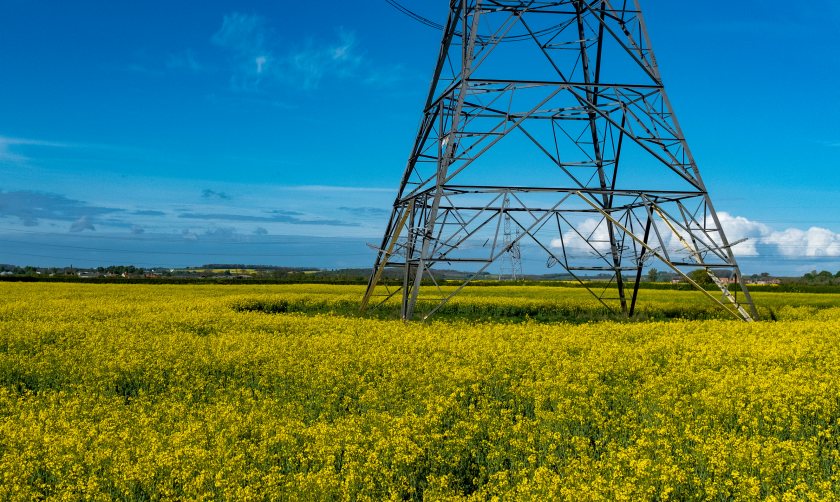Power grid reform must respect the countryside, rural group says

The government has launched a consultation on proposed reforms to land rights and consents processes for electricity infrastructure, despite fears this may come at the expense of rural areas if not handled with care.
The Department for Energy Security and Net Zero's public consultation is aimed at enabling the faster delivery of electricity network infrastructure across the UK.
The review, prompted by the growing need for grid expansion to meet clean energy targets, concludes that current systems may not be sufficient to support net zero ambitions or ensure energy security.
The government is now seeking views on a series of proposals designed to streamline the process by which electricity network operators access private land for building and maintaining infrastructure.
According to the department, the changes aim to balance the need for speed and efficiency with the protection of landowners’ rights, local communities, and the environment.
It says “fair and proportionate” reforms are essential to unlock new grid connections quickly, support economic growth, and ensure the UK is equipped for a low-carbon future.
However, Victoria Vyvyan, president of the Country Land and Business Association (CLA), cautioned against reforms that prioritise developer convenience over rural needs.
She emphasised the need for practical, countryside-sensitive solutions, such as ensuring poles are compatible with agricultural machinery, carefully planned routes, and greater use of underground cabling techniques like cable ploughing.
“We all want a power grid that’s fit for the future – but it can’t come at the expense of the farms and landscapes we rely on. Speeding things up is fine, so long as it’s done with care.”
“Changing the rules for how lines are approved will make life easier for developers – but not necessarily for the people living and working under them."
Ms Vyvyan concluded: "Getting planning sign-off is one thing, getting it right on the ground is another.”
The consultation will likely be of particular interest to electricity network operators, energy developers, farmers, landowners, local authorities, and community representatives.
It is part of a broader strategy to modernise planning and land access rules in response to surging demand for renewable power and infrastructure upgrades.
It closes for responses on 2 September 2025.








